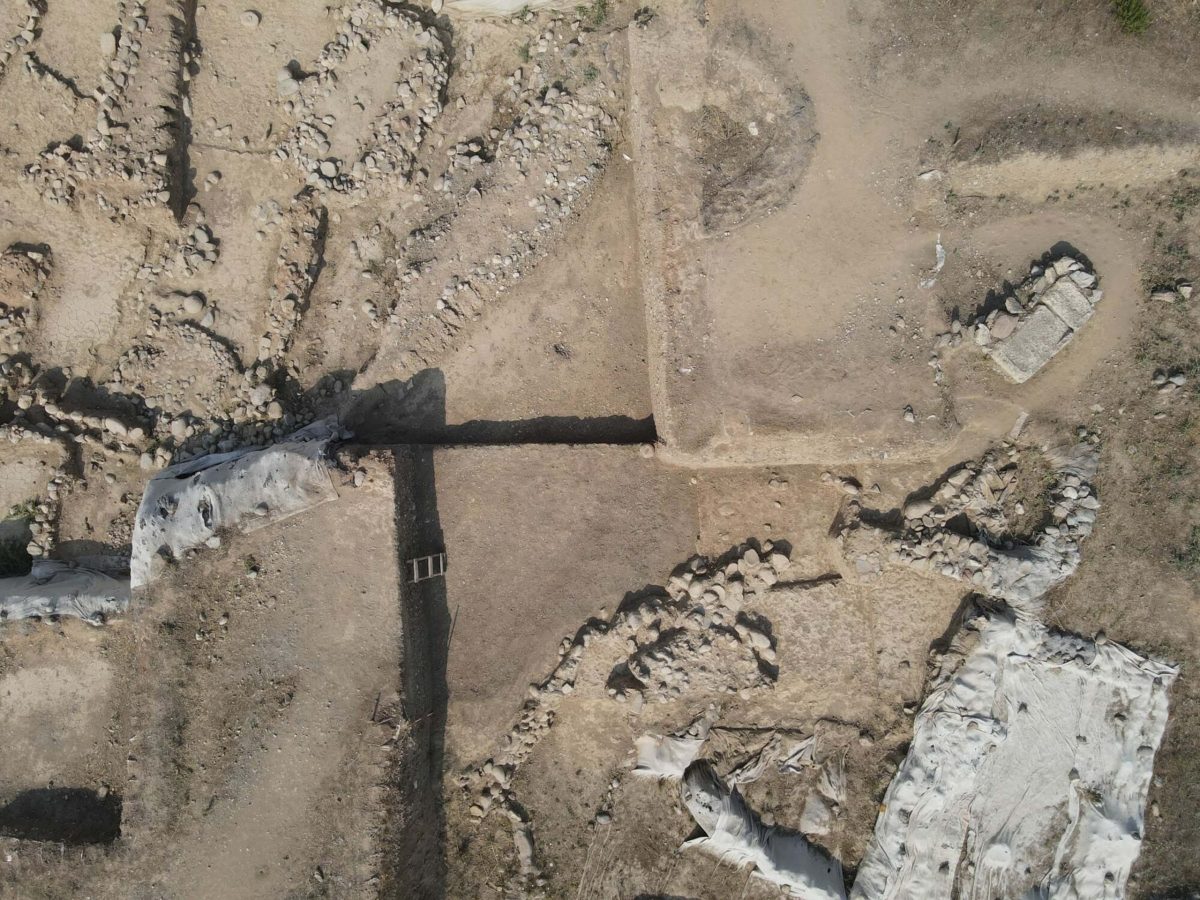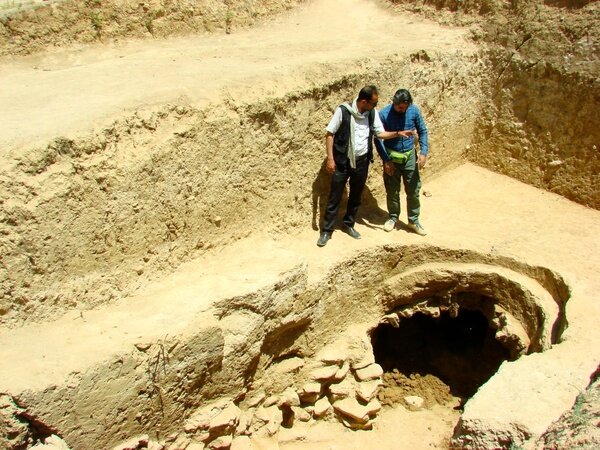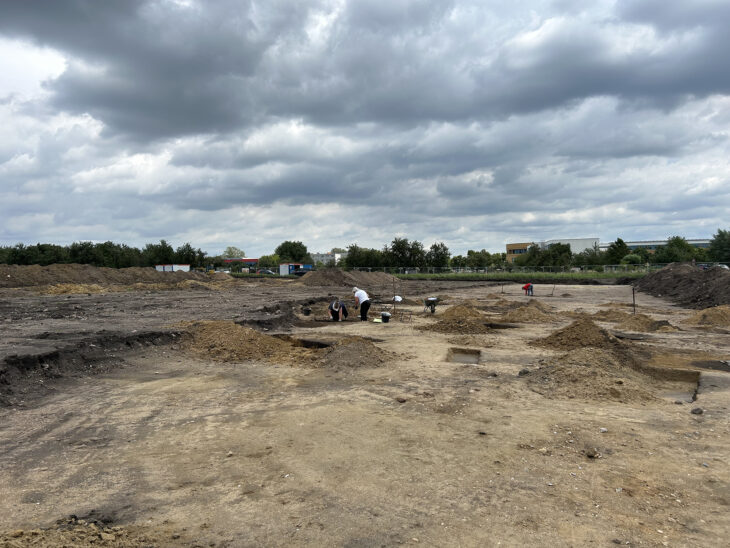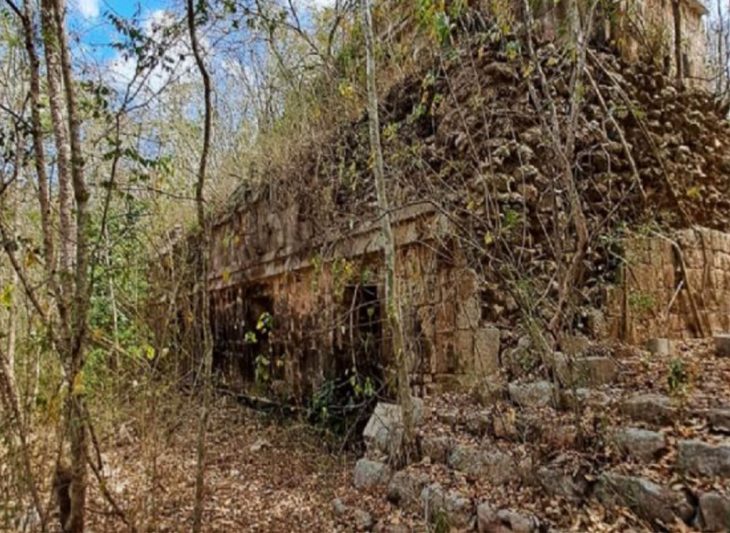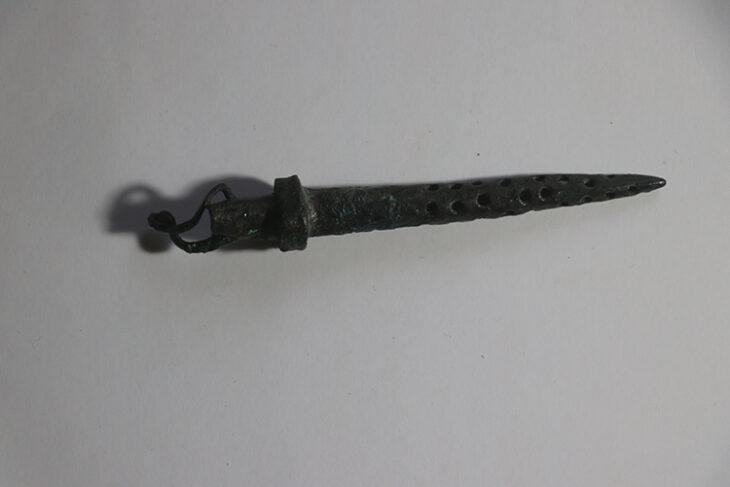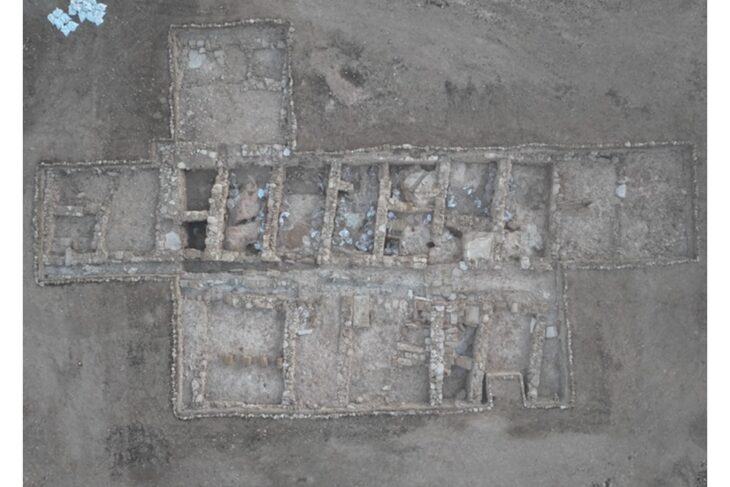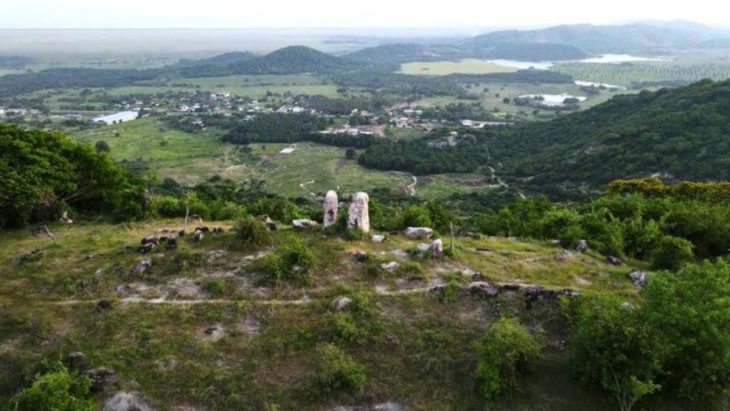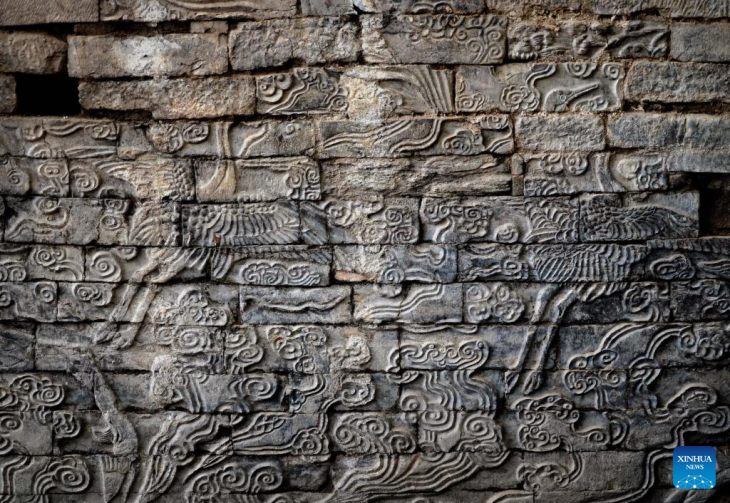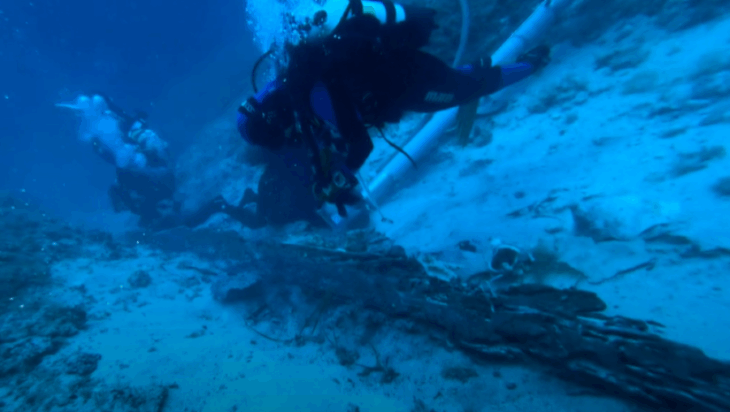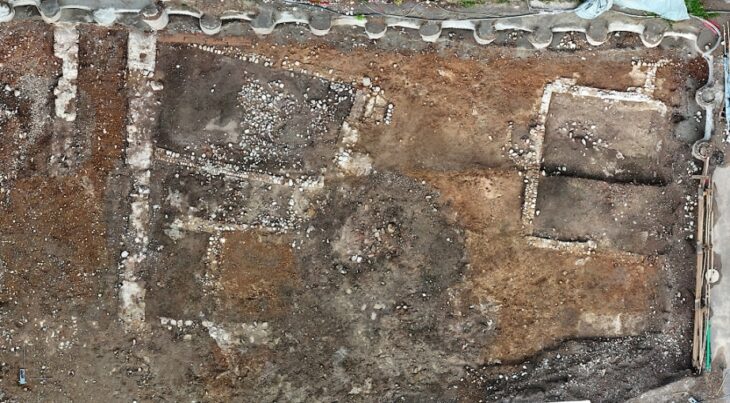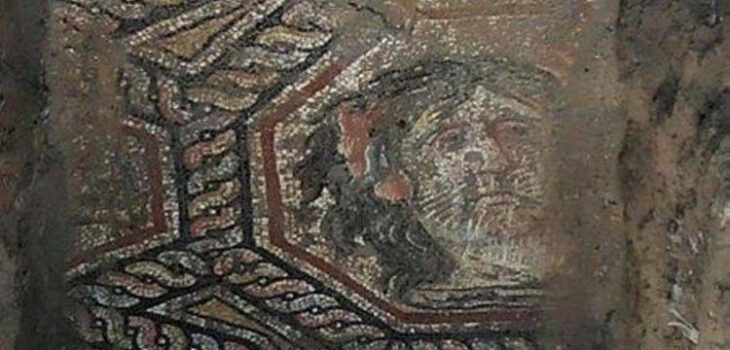One of the earliest water channels in history dating back 8,200 years was found during the excavation work carried out in the Yeşilova Höyük (Yeşilova mound).
Yeşilova Höyük is a mound in the Bornova district of İzmir, Turkey, and is the oldest known prehistoric human settlement in the area of İzmir.
The mound that is being excavated has already uncovered significant Neolithic Age traces as well as a wealth of information about the earliest settlers in the region of Izmir off the coast of the Aegean, their surroundings, and their culture. For instance, unlike Catalhoyuk in central Anatolia, where the houses are next to one another, they lived in separate houses with separate roof systems.
The findings from the joint project between the Culture and Tourism Ministry of Turkey, Ege University, and the local authorities, are significant because they suggest that the historical settlements in the Izmir area go back 8,500 years, to 6500 BCE.
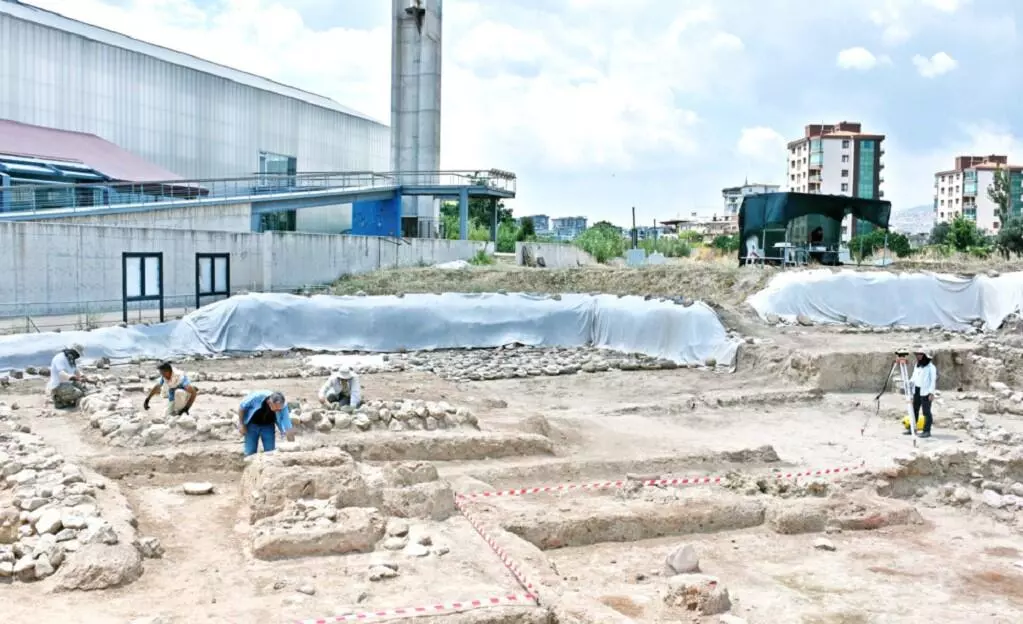
An 8,200-year-old water channel that was discovered recently during the exploration of Yeşilova Mound represents an important archaeological achievement. Ingeniously, it was discovered that the early city dwellers had manually changed the watercourse so that it flowed right into their immediate area.
📣 Our WhatsApp channel is now LIVE! Stay up-to-date with the latest news and updates, just click here to follow us on WhatsApp and never miss a thing!!
Associate Professor Zafer Derin of Ege University, who located the mound and has been the excavation leader since 2005, explains that:
“Here at Yeşilova Mound, the site of Izmir’s inaugural village settlement, our current focus is deciphering the nuances of their urban planning. The excavation brought to light a canal, spanning 6.5 meters (21.3 feet) in width, traversing through the heart of the settlement. With stone-lined edges and an elevated earthen embankment, this architectural marvel persisted over eight millennia—spanning four generations.”
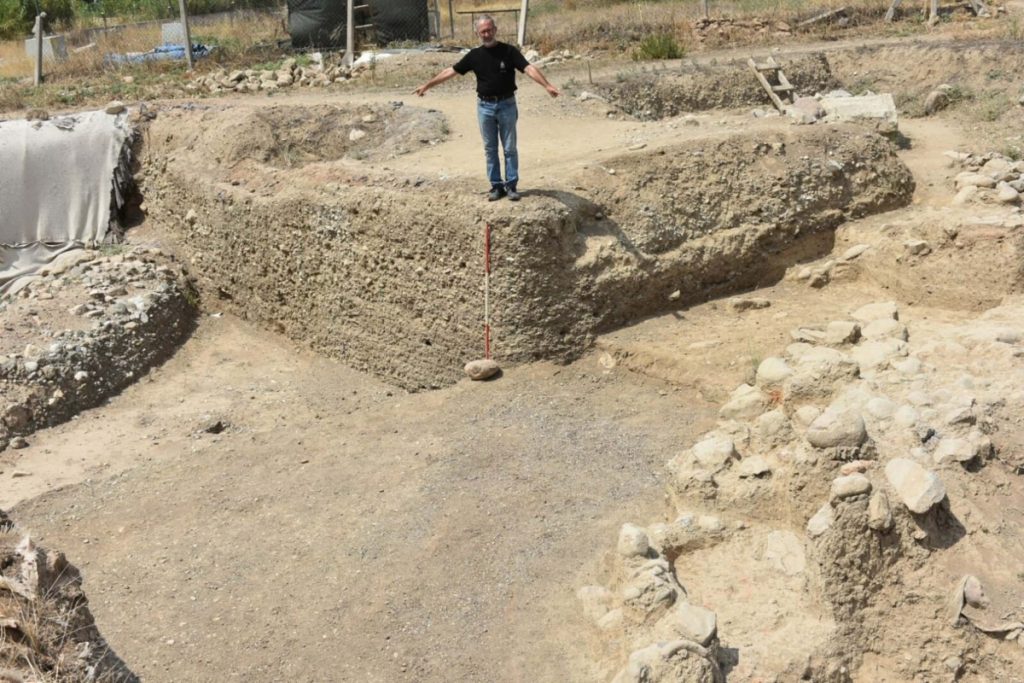
“The canal eventually silted over time, yet its legacy endured, as evidenced by Roman-era efforts to channel water through the same area using conduits. The canal’s grandeur is emphasized by its expansive width, and the settlement developed harmoniously on both flanks. By carefully accommodating potential flooding, the settlement demonstrated unparalleled foresight. Our measurements have identified the canal’s length at 220 meters, although we’ve only managed to uncover a fragment because of the dense accumulation of gravel within.”
Derin highlighted the significance of the settlers’ urban planning prowess.
“The pioneers of this city ingeniously harnessed water accessibility, masterfully shaping their environment. Their urban blueprint might just be a pioneering instance in Anatolian history, showcasing their exceptional adaptability,” he added.
There have been ongoing excavation works in the Yesilova mound, with the support of the Ministry of Culture and Tourism, Izmir Metropolitan Municipality, Bornova District Municipality, and Ege University.

